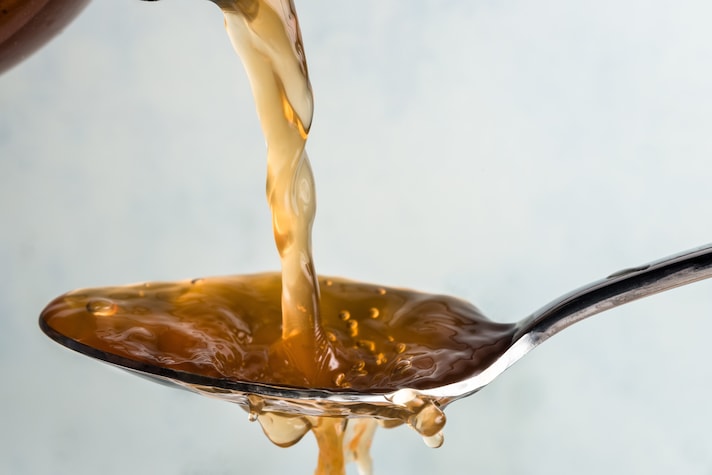Healthy Seasoning Swaps: How to Use Vinegar, Lemon, and Spices Like a Pro
Seasoning can make or break a dish, but many store-bought options are packed with excess salt, sugar, and additives. By using natural flavor enhancers like vinegar, lemon juice, and spices, it's possible to create bold, delicious meals without compromising health. Small swaps can elevate everyday cooking, bringing out the best in ingredients while keeping meals light and nutritious.

Seasoning is the heart of every great dish, but not all flavor enhancers are created equal. Many store-bought sauces and seasonings are packed with sodium, added sugars, and unhealthy fats that can turn a nutritious meal into a not-so-healthy one.
The good news? You don’t have to sacrifice taste to eat well. By swapping out heavy seasonings like salt, butter, and processed sauces for vinegar, lemon juice, and natural spices, you can enhance flavors while keeping your meals light, fresh, and heart-healthy.
Why Cut Back on Salt, Sugar, and Processed Seasonings?
Many common seasonings contain hidden ingredients that can negatively impact your health over time.
- Excess salt can lead to high blood pressure and heart disease.
- Added sugars sneak into condiments and sauces, increasing the risk of diabetes and weight gain.
- Highly processed seasonings often contain preservatives and artificial flavors that don’t benefit your body.
By making a few smart swaps, you can create bold, delicious flavors naturally while keeping your meals healthier.
The Power of Vinegar: A Flavor Booster with Health Benefits

Vinegar isn’t just for salad dressings—it’s a versatile, low-calorie flavor enhancer that works in everything from marinades to roasted vegetables. It adds acidity and depth, brightening up flavors without the need for extra salt or sugar.
Best Types of Vinegar and How to Use Them
- Apple Cider Vinegar – Ideal for dressings, marinades, and even digestive health.
- Balsamic Vinegar – Adds a rich, slightly sweet depth to vegetables and meats.
- Red or White Wine Vinegar – Perfect for vinaigrettes, seafood, and tangy sauces.
- Rice Vinegar – A mild, slightly sweet option that works well in Asian-inspired dishes.
Pro Tip: Splash vinegar onto roasted vegetables or grilled meats to enhance their natural flavors without extra salt.
Lemon Juice: A Natural Brightener for Any Dish

Lemon juice is one of the simplest and most effective seasoning swaps. Its bright, tangy acidity enhances flavors just like salt—without the health drawbacks.
Ways to Use Lemon Juice Instead of Salt or Heavy Dressings:
- Drizzle over roasted vegetables for a fresh, zesty finish.
- Squeeze onto grilled chicken or fish to enhance natural flavors.
- Add to soups and sauces to cut through richness and balance flavors.
- Mix with olive oil for a quick and easy salad dressing.
Lime juice works just as well, especially in Mexican, Thai, or tropical-inspired dishes.
Pro Tip: Lemon zest (the outer peel) contains natural oils that add even more flavor—grate some over your dishes for an extra citrusy kick.
Spices: The Ultimate Salt and Sugar Substitute

Spices can completely transform a dish, adding complexity and depth without unnecessary sodium or sugar. Whether you prefer smoky, spicy, earthy, or aromatic flavors, there’s a natural spice alternative for every dish.
Best Spice Swaps for Common Seasonings
- Instead of salt → Use garlic powder, onion powder, or smoked paprika.
- Instead of sugar → Try cinnamon, nutmeg, or vanilla extract.
- Instead of butter-based sauces → Use cumin, turmeric, or chili flakes for bold flavors.
- Instead of store-bought seasoning blends → Make your own mix with dried herbs and spices.
Pro Tip: Toast whole spices in a dry pan before using them to intensify their aroma and flavor.
Herbs: Fresh or Dried, They Make Every Dish Better

Herbs bring aroma, freshness, and complexity to meals without adding calories or unhealthy ingredients.
Top Herbs for Everyday Cooking
- Basil – Pairs well with tomatoes, pasta, and Mediterranean dishes.
- Cilantro – Adds brightness to Mexican and Asian cuisine.
- Rosemary & Thyme – Perfect for roasted meats and vegetables.
- Parsley – A versatile finishing herb for soups, salads, and grilled dishes.
- Mint – Great for freshening up fruit salads, yogurt, and drinks.
Fresh herbs offer maximum flavor, but dried herbs are a great alternative if fresh ones aren’t available.
Pro Tip: Add fresh herbs at the end of cooking to preserve their bright flavors, while dried herbs work best earlier in the process to let their flavors develop.
How to Transition to Healthier Seasonings Without Losing Flavor
If you’re used to heavy seasonings, making the switch to vinegar, lemon juice, and spices can take a little adjustment. Here are some practical tips to ease the transition:
✔ Start small – Reduce salt or sugar gradually while increasing spices and citrus.
✔ Experiment with combinations – Try different spice blends and herb pairings to find new favorites.
✔ Use umami flavors – Mushrooms, tomatoes, and nutritional yeast add savory depth without added salt.
✔ Make homemade seasoning mixes – Blend your own spice rubs and salad dressings to control ingredients.
With a little practice, you’ll find that natural flavors become more vibrant, and you won’t even miss the processed seasonings.
Final Takeaway: Elevate Your Cooking with Natural Seasonings
Swapping salt, sugar, and processed seasonings for vinegar, citrus, and spices is an easy way to make meals healthier without sacrificing taste. By embracing these natural flavor enhancers, you can create delicious, nutrient-packed dishes while reducing excess sodium, sugar, and artificial ingredients.
;Resize,width=767;)



